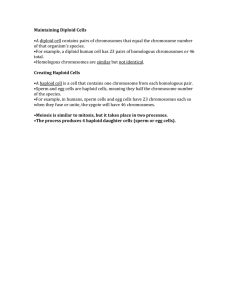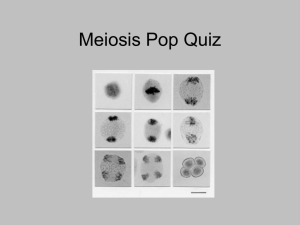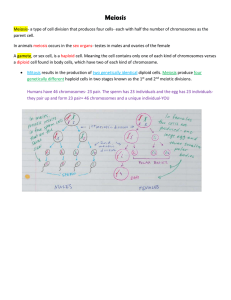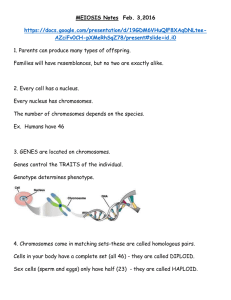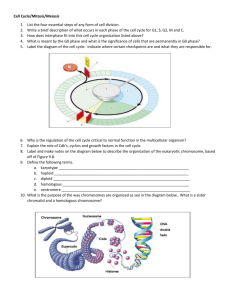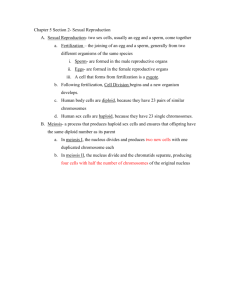body cells
advertisement
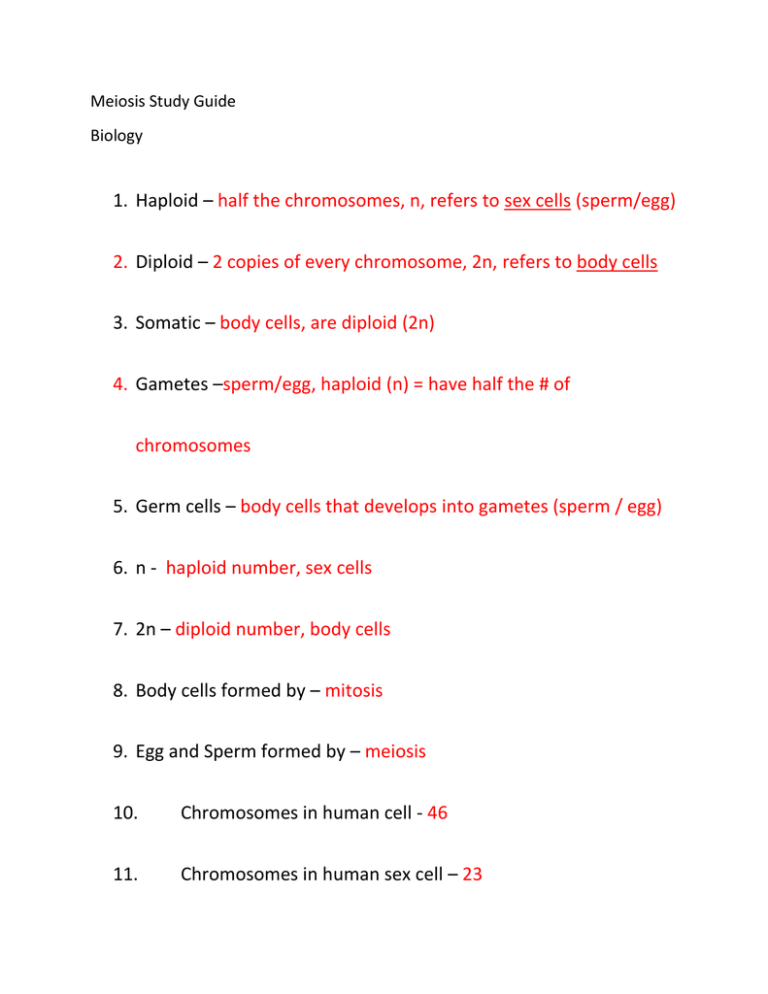
Meiosis Study Guide Biology 1. Haploid – half the chromosomes, n, refers to sex cells (sperm/egg) 2. Diploid – 2 copies of every chromosome, 2n, refers to body cells 3. Somatic – body cells, are diploid (2n) 4. Gametes –sperm/egg, haploid (n) = have half the # of chromosomes 5. Germ cells – body cells that develops into gametes (sperm / egg) 6. n - haploid number, sex cells 7. 2n – diploid number, body cells 8. Body cells formed by – mitosis 9. Egg and Sperm formed by – meiosis 10. Chromosomes in human cell - 46 11. Chromosomes in human sex cell – 23 12. Homologous chromosomes – two similar chromosomes that you inherit from your mother and father 13. Fertilization – fusion of egg and sperm 14. Oogenesis – the creation of egg cells (ovum) 15. Zygote – a fertilized egg 16. Asexual reproduction – forms an exact copy with SAME genetic material; happens in mitosis 17. Random assortment of chromosomes – happens during metaphase I and contributes to genetic diversity 18. Crossing over – homologous chromosomes twist around each other and swap random genes ; increases genetic diversity 19. Number of sperm produced in meiosis – 4 20. Number of eggs produced in meiosis – 1 egg and 3 polar bodies 21. What happens during prophase I? crossing over 22. What happens during metaphase I? chromosomes line up randomly with their homologous pair 23. What happens during Anaphase I? – homologous chromosomes are separated and chromosome number is reduced in half 24. What happens during anaphase II? Sister chromatids are pulled apart by fibers Mitosis Body cells Meiosis Sex cells Chromosome number # of cell divisions # of cells produced Stays the same Half 1 2 2 4 Cells identical to parent cell? Type of reproduction Yes, genetically the same Asexual No, genetically unique Type of cell Review “Meiosis” worksheets and “Checking In” sexual
